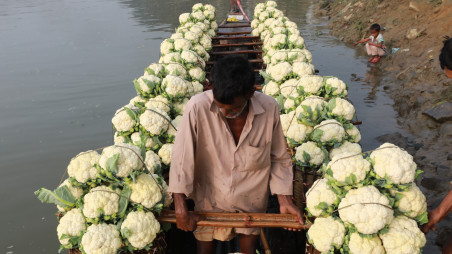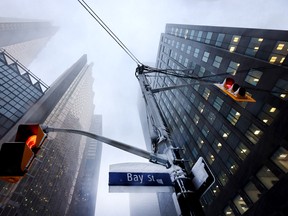Winter Vegetables Cool Down Food Inflation, But VAT Hike and Ramadan Could Reverse Trend: Experts
The Slight Fall in Food Prices Reduces Country’s General Inflation to 10.89%
As the winter season sets in, Bangladesh has witnessed a slight decline in food prices, leading to a decrease in the country’s general inflation rate from 11.38% in November to 10.89% in December. However, experts warn that this trend may not last long due to various factors, including the upcoming Ramadan and the government’s decision to raise the value-added tax (VAT) on certain products and services.
Food Inflation Dips to 12.92% in December
According to the latest data from the Bangladesh Bureau of Statistics (BBS), food inflation in Bangladesh was recorded at 12.92% in December, down from 13.8% in November. The slight fall in food prices has also contributed to a reduction in the country’s general inflation rate.
Seasonal Effects Contribute to Decline in Food Prices
Mohammed Mizanur Rahman, director general of BBS, attributed the decline in food prices to seasonal effects. "The prices of winter vegetables have decreased due to seasonal effects in the market, which is noticeable," he said. However, he cautioned that this trend may not continue indefinitely and could change later.
Dr Mustafa K Mujeri: Seasonal Effect at Play
Dr Mustafa K Mujeri, former director general of the Bangladesh Institute of Development Studies (BIDS), also attributed the decline in food prices to seasonal effects. "I think a seasonal effect is at play here," he said. "Due to the winter season, vegetable prices, which were higher earlier, have come down a bit. This has contributed to a reduction in food inflation."
Rising Rice Prices and Ramadan: Factors to Watch
However, Dr Mujeri warned that it’s uncertain how long this downward trend will continue in the coming months. "We need to observe whether this is temporary, as we are already seeing an upward trend in rice prices," he said. With Ramadan approaching, the prices of many commodities are also rising, which could impact food inflation.
Impact of VAT Hike on Market
Dr Mujeri also pointed out that another factor at play is the recent increase in VAT on many products. "VAT has risen from 7% to 16% on various goods and services, which will impact the market in the coming days," he said. This could lead to a rise in food inflation in the coming months.
Comparison with Previous Years
In October, food inflation was the highest since July, when it peaked at 14.10% due to disruptions in supply chains caused by anti-discrimination protests. Non-food inflation in December was recorded at 9.26%, down from 9.39% in November.
Conclusion: Experts Warn of Upward Trend
While the decline in food prices has contributed to a reduction in the country’s general inflation rate, experts warn that this trend may not last long. With Ramadan approaching and the VAT hike on various products, it is likely that food inflation will rise in the coming months. As such, the government needs to take steps to mitigate these factors and ensure stability in the market.
Recommendations
To address the potential upward trend in food prices, the government could consider the following measures:
- Increase imports: The government could increase imports of essential commodities, including rice, to meet domestic demand.
- Subsidize farmers: The government could provide subsidies to farmers to encourage them to produce more winter vegetables and other crops that are in high demand.
- Reduce VAT on essential goods: The government could consider reducing the VAT on essential goods, such as food items, to reduce the burden on consumers.
Conclusion
The slight decline in food prices has reduced the country’s general inflation rate from 11.38% in November to 10.89% in December. However, experts warn that this trend may not last long due to various factors, including Ramadan and the VAT hike. To address these challenges, the government needs to take steps to mitigate them and ensure stability in the market.
Sources
- Bangladesh Bureau of Statistics (BBS)
- Bangladesh Institute of Development Studies (BIDS)
About the Author
[Author’s Name] is a senior journalist with over 10 years of experience covering economic and business news. He has a deep understanding of the Bangladeshi economy and its complexities.
Disclaimer
The views expressed in this article are those of the author and do not necessarily reflect the views of The Business Standard or its affiliates.



